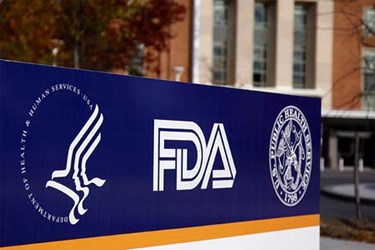FDA Extends Sanitary Transportation Of Human And Animal Food Rule Comment Period
By Laurel Maloy, contributing writer, Food Online

Implementation of FSMA looms as the FDA continues to solicit public comment on this final rule
Originally closed on Feb 14, 2014, the comment period on the proposed rule for the Sanitary Transportation of Human and Animal Food has been extended. The new deadline is July 30, 2014.
The primary goal of the proposed rule is to address concerns and issue regulations regarding the safe and sanitary transport of food for both animal and human consumption. The final rule will govern transport by motor carrier and rail, and will also outline the requirements for receivers, shippers, and others involved in the transportation of human or animal food. Focusing on prevention, the final FSMA rule will seek to curb insanitary practices that could lead to food contamination.
Clearly not designed to cripple the transportation industry, but to enhance the safety of our nation’s food supply chain, transporters, receivers, and distributors will combine FSMA’s regulatory guidelines with currently utilized safe transport and storage practices. The press release, in summarizing the purpose of the proposed rule, is not concerned with those engaged in food transportation operations with less than $500,000 in annual revenue. Additionally, the proposed rule will not apply to the transport of live animals. It will only be applicable to fully packaged, shelf-stable foodstuffs; or to raw agricultural commodities (RACs) being transported by farms. It will also allow for those businesses subject to the rules to request a waiver from the requirements. The waiver will be granted, contingent on the requestor being able to demonstrate compliance and validate its safe and sanitary food transport practices. The persons requesting the waiver must also affirm that the waiver will not be contrary to the public interest.
Webinar: FSMA Fridays – The Sanitary Transport Of Human And Animal Food
Food that is at the greatest risk for contamination, such as produce not completely enclosed by a container, will prompt the strictest regulation in the proposed rule. Inspections for cleanliness will be conducted on transport vehicles prior to loading. Additionally, foods that require temperature/time controls to ensure their safe transport will be more closely monitored. Carriers will be also be required to pre-cool refrigerator trucks to the established temperature prior to loading, with both the carrier and the shipper sharing responsibility to ensure the proper temperature is maintained. The carrier will be notified by the shipper of their requirements for cleanliness and temperature in writing, while the shipper will be required to maintain records proving the information was provided to the carrier. The carrier will be required to implement written recordkeeping to specify its sanitary practices and inspections. Carriers will also be required to provide training to any personnel engaged in transportation operations, including documentation of that training.
Do you know how real-time monitoring can improve food safety?
The monetary impact is expected to be minimal — the estimated cost for each of the approximately 83,609 affected establishments is expected to be about $1,784 for the first year and approximately $360 for subsequent years.
The FDA admits there is insufficient data to be able to quantify the potential benefits of this proposed rule. In fact, the agency does not expect large scale changes in current practices. However, common sense dictates that improvement upon the somewhat casual transportation practices of at risk food will considerably lessen the menace of contamination. A plus for the transportation industry is that there will be fewer losses of unintentionally adulterated human and animal food, feed ingredients, and products.
This page will allow concerned parties to view all of the documents and comments pertaining to this proposed rule and also provides a link to a comment page. Those wishing to comment may also submit comments in writing, identifying the Docket No. FDA-2013-N-0013 and/or Regulatory Information Number (RIN) 0910-AG98 on all correspondence.
